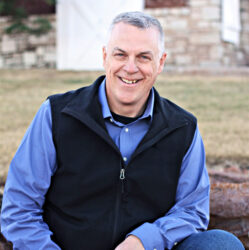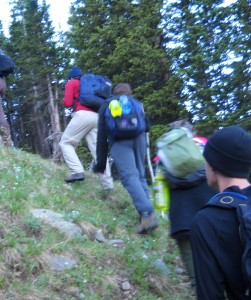 What makes one of the songs we sing on Sunday morning characterized as a Biblical song as opposed to one that would be considered un-Biblical (or as some have defined, a problem song)? Is there some criteria or some sort of a ‘scale’ that we can use to determine our song choice? Whether we like it or not, we need to be more diligent in sincerely thinking about what we’re singing and why we’re singing it. Without debate a Biblical song/hymn would be one that can be found and supported through God’s word. Let’s consider two songs that come almost entirely from scripture:
What makes one of the songs we sing on Sunday morning characterized as a Biblical song as opposed to one that would be considered un-Biblical (or as some have defined, a problem song)? Is there some criteria or some sort of a ‘scale’ that we can use to determine our song choice? Whether we like it or not, we need to be more diligent in sincerely thinking about what we’re singing and why we’re singing it. Without debate a Biblical song/hymn would be one that can be found and supported through God’s word. Let’s consider two songs that come almost entirely from scripture:
“I will sing of the mercies of the Lord forever, I will sing, I will sing.
I will sing of the mercies of the Lord forever, I will sing of the mercies of the Lord.
And with my mouth will I make know Thy faithfulness, Thy faithfulness.
And with my mouth will I make know Thy faithfulness to all generations.”
Psalms 89:1 reads: “I will sing of the lovingness of the Lord forever, To all generations I will make know Your faithfulness with my mouth.” (NAS)
This song was written by James Filmore at the turn of the century, but it didn’t find it’s popularity in church music until the 1960’s. In 1983, the chorus became a regular addition in some of our hymnals. Scripture based hymns can be found in surplus in many of the traditional and contemporary hymns. One of our long time favorites is, again, almost a direct quote, from the book of Psalms.
Hallelujah, Praise Jehovah
“Hallelujah, praise Jehovah! From the heavens praise His name; Praise Jehovah in the highest; all His angels praise proclaim. All His host together praise Him, sun and moon and stars on high; Praise Him, O ye heavens of heavens, and ye floods above the sky.”
“Praise the Lord! Praise the Lord from the heavens, Praise Him in the heights! Praise Him all His angels; Praise Him, all His host! Praise Him, sun and moon; Praise Him, all stars of light! Praise Him, heights heavens, and the waters that are above the heavens!” Psalm 148:1-4
This is only the first verse of a popular hymn written in 1893 by William J. Kirkpatrick. But as you investigate the Biblical accuracy of the hymn, you’ll find the 2nd and 3rd verses hold true to the words of Psalm 148: 5-12 with vs. 13 reserved for the chorus. “Let them praise the name of Lord, for His name alone is exalted; His glory is above earth and heaven.” My hope and prayer is that you will continue to search out songs that are Biblical and sound when it comes to singing songs to God our Father. A song that is accurately supported through God’s word will draw us closer to Him as we give to Him our praise!





